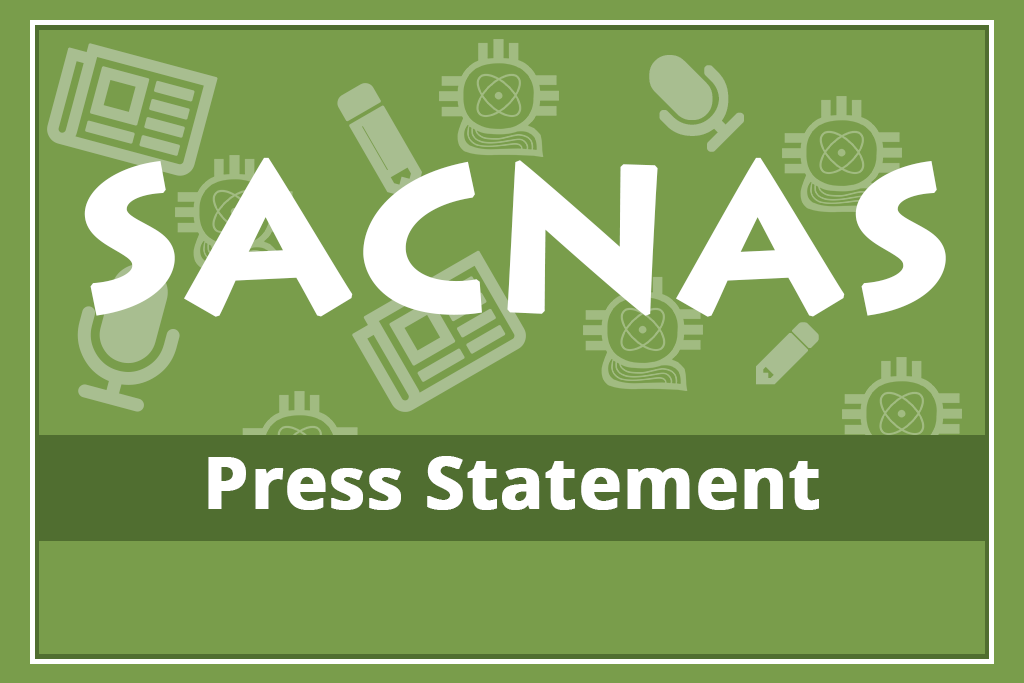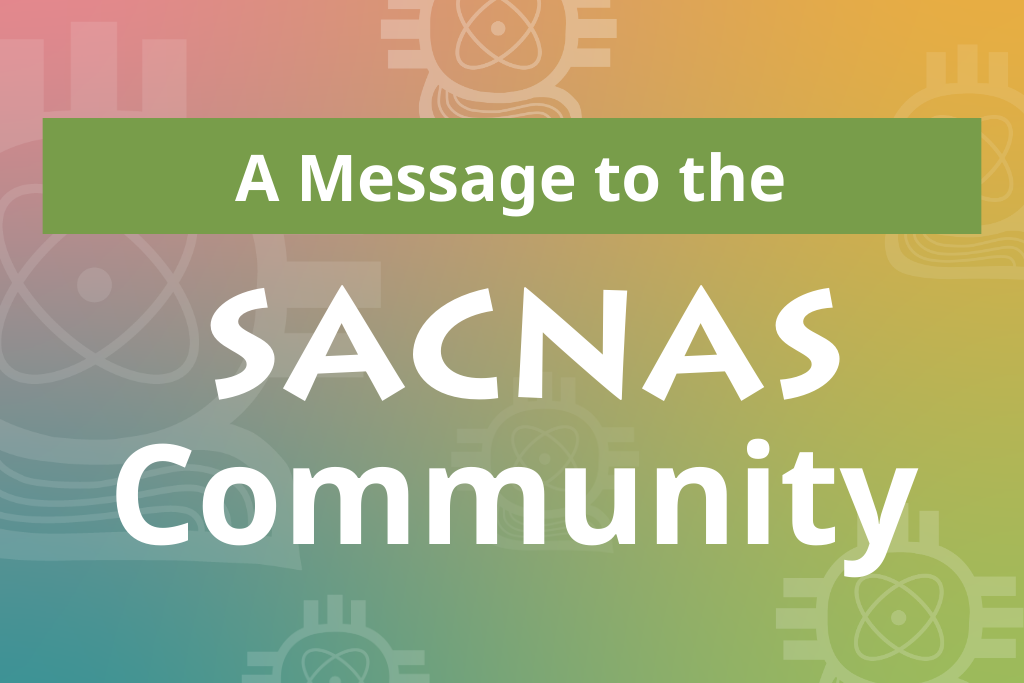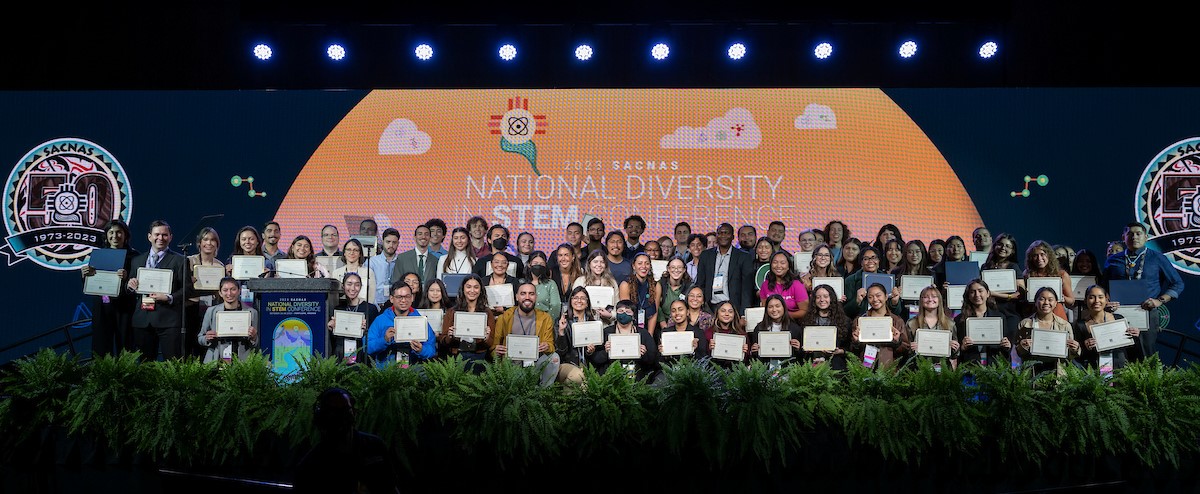SANTA CRUZ, CA – A measles outbreak that began last month in Clarke County, Washington has prompted a statewide emergency, the first indication of a potential national public health crisis. According to the World Health Organization, each year immunizations prevent 2 – 3 million deaths and additional illnesses and disabilities from 26 vaccine-preventable diseases including measles, whooping cough, tetanus, and diphtheria. A rise in anti-vaccination campaigns paired with a new relaxing of both domestic and international laws has allowed vaccination exemptions based on religious or philosophical beliefs. This has resulted in lower rates of vaccines worldwide and a resurgence of vaccine-preventable diseases.
As a community of scientists, SACNAS backs vaccinations based on the evidence of safety and success in preventing and eradicating disease. Decades long data supports the efficacy and safety of vaccinations and SACNAS requests that this scientific evidence be considered in policy making.
SACNAS also recognizes the troubling history of epidemics and unethical medical research and public health practices that have widely devastated or targeted communities of color.
“The vaccination issue connects to a myriad of sensitivities for communities of color, both historical and current. It remains critically important in issues of public health and other scientific issues that impact society to have a diverse scientific enterprise that connects science to the communities it serves, making it relevant, translatable and believable.” said SACNAS President Dr. Sonia Zárate.
Just as in all areas of science, vaccination research benefits and is improved with the contributions of unique perspectives, shared histories, and direct contact with all communities, particularly vulnerable and disadvantaged populations. Additionally, working to ensure STEM diversity and fostering the cultivation of inclusive environments allow diverse scientists to thrive while developing effective solutions that address the complexities and challenges of our increasingly diverse nation.
The experts listed below are also available for media interviews (Spanish language interviews available) to comment on the implications of the measles outbreak on vulnerable populations. If you would like to schedule an interview, please contact Yamila Pino at 202-660-1433 or yamila@prosperolatino.com.
Dr. Sara Del Valle, Mathematical Epidemiologist, Los Alamos National Laboratory
Dr. Sara Del Valle focuses on developing, integrating, and analyzing mathematical and computational models for the spread of infectious diseases including smallpox, anthrax, malaria, HIV, and influenza on a pandemic scale. She also studies the role of social behavior on disease dynamics, including the impact of social media on behavior and developing computational models to study those impacts.
Dr. Rosalyn LaPier, Associate Professor, Environmental Studies, University of Montana
Dr. Rosalyn La Pier is a trained environmental historian of the historian of the history of communicable disease. Dr. LaPier is also an award-winning Indigenous writer and ethnobotanist with a BA in physics and Ph.D. in environmental history, studying the intersection of traditional ecological knowledge (TEK) learned from elders and the academic study of environmental history.
Dr. Naomi Lee, Assistant Professor of Chemistry & Biochemistry, Northern Arizona University
Dr. Naomi Lee research focuses on novel peptide-based vaccine development and molecular epidemiology. Dr. Lee plans to use her research to improve the health care of AIAN people through biomedical research, community-based participatory research, STEM education, and mentoring.
Dr. Loyda M. Meléndez, Department. of Microbiology and Zoology, University of Puerto Rico-School of Medicine
Dr. Loyda M. Melendez is trained in immunohematology and cytometry. Her fields of studies also include viral pathogenesis, neuroscience, and proteomics.
Dr. Monica Sandoval-Johnson, Postdoctoral Associate, University of North Carolina-Chapel Hill
Dr. Monica Sandoval-Johnson current research focuses on formulating improved nano- and microparticle drug delivery vehicles for vaccines and host-directed therapies against infectious diseases. Her long-term research goals are to understand the workings of the immune system and exploit immune-modulation to fight diseases.
About SACNAS
SACNAS is an inclusive organization with over 45-years of experience fostering the success of Chicanos/Hispanics & Native Americans, from college students to professionals, in attaining advanced degrees, careers and positions of leadership in STEM.
SACNAS serves approximately 6,000 members, a larger community of 20,000, and with 115 SACNAS student and professional chapters throughout the U.S. and Puerto Rico.



